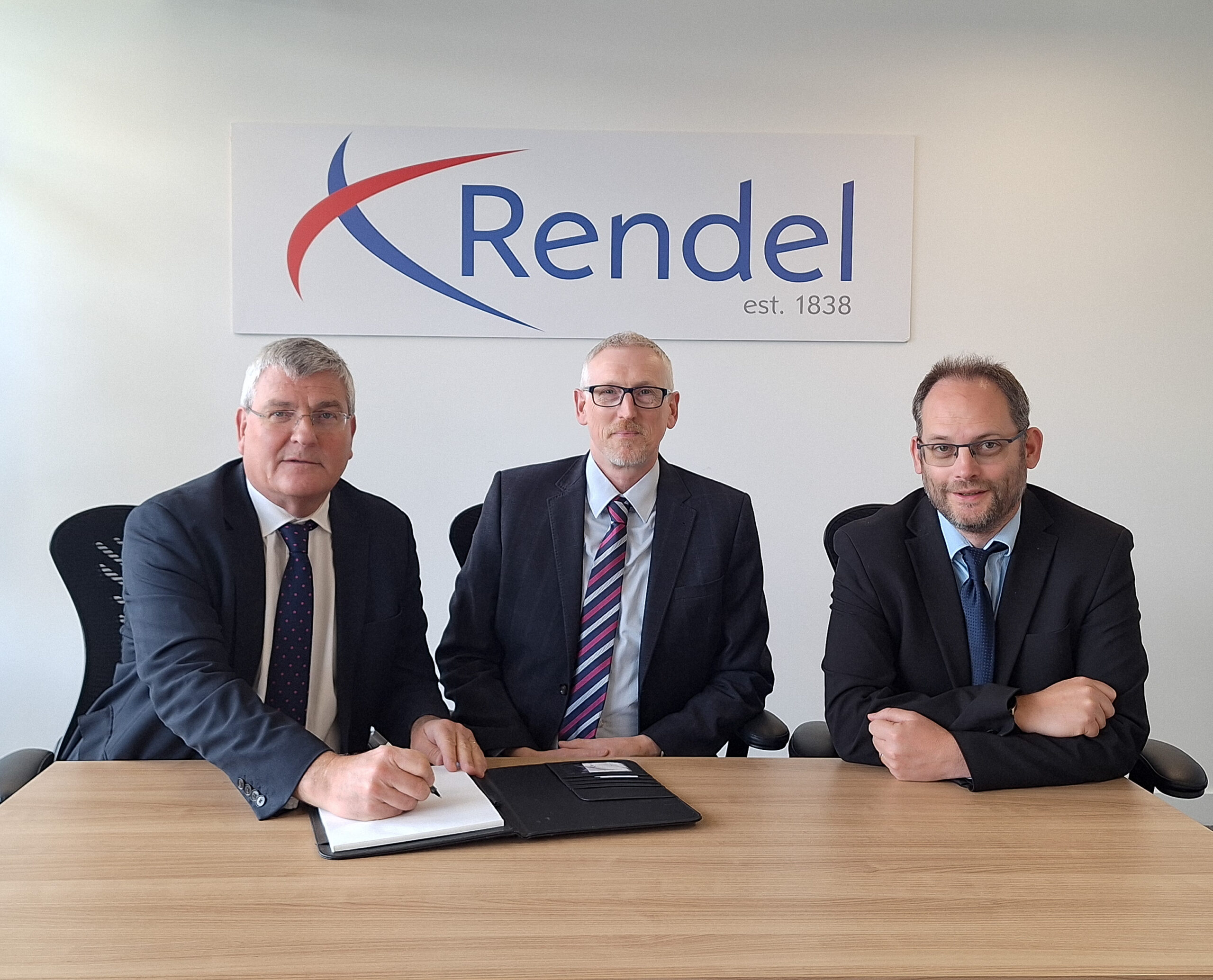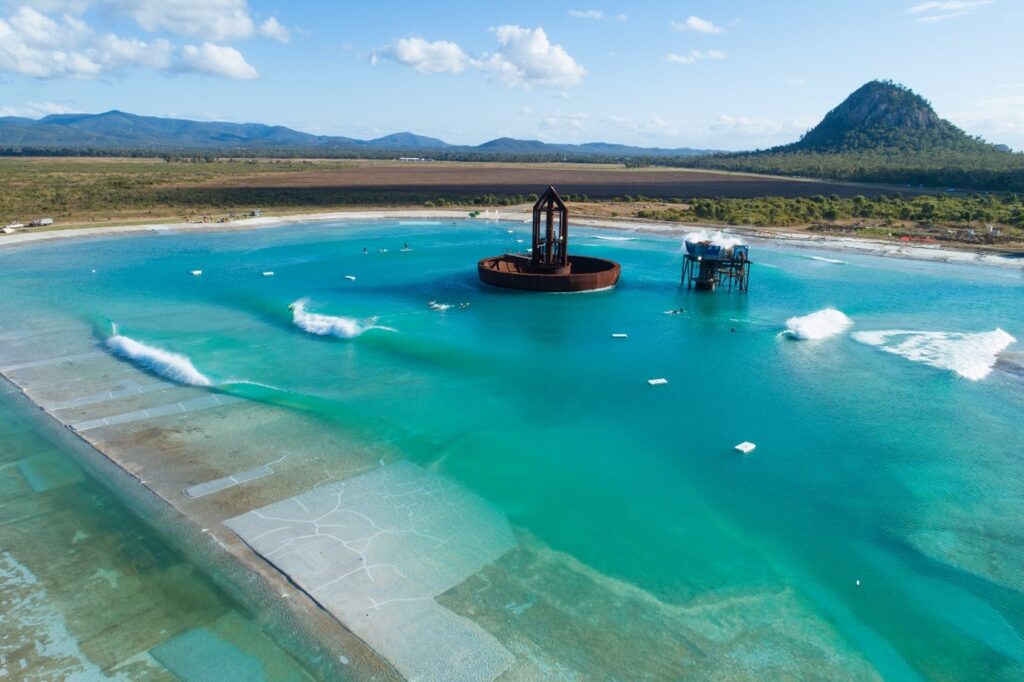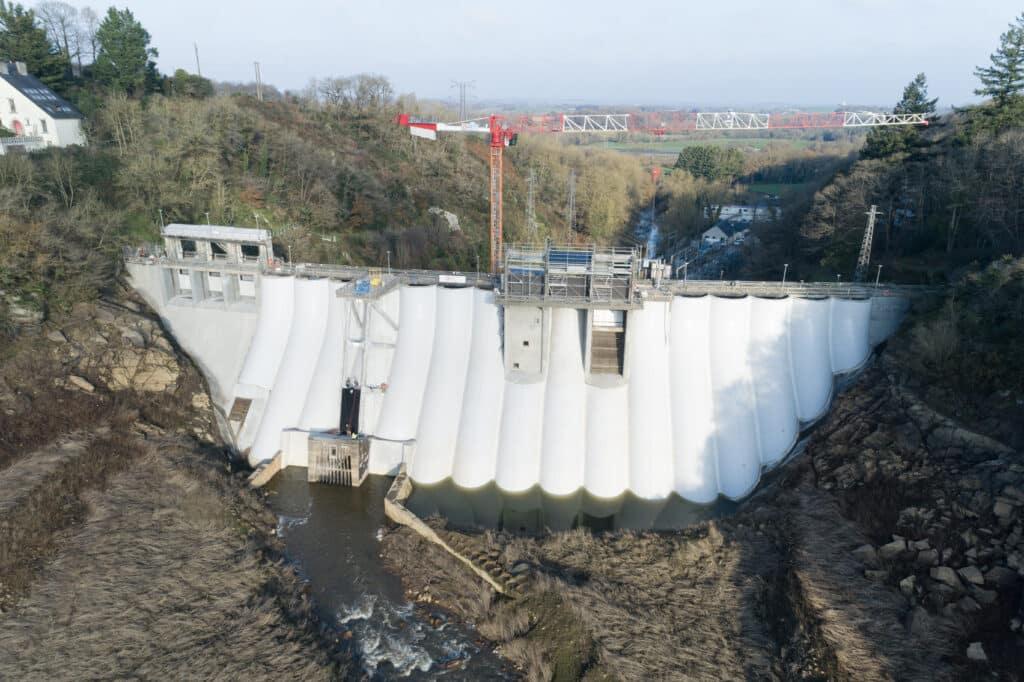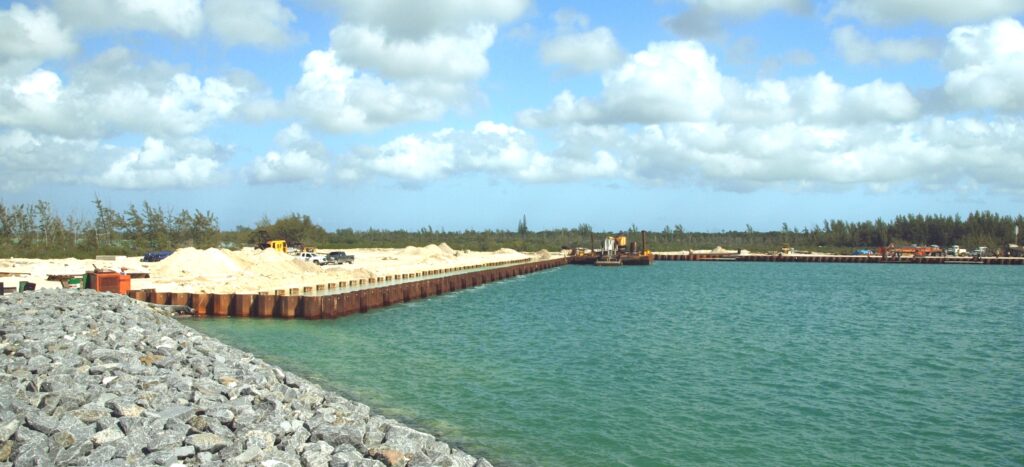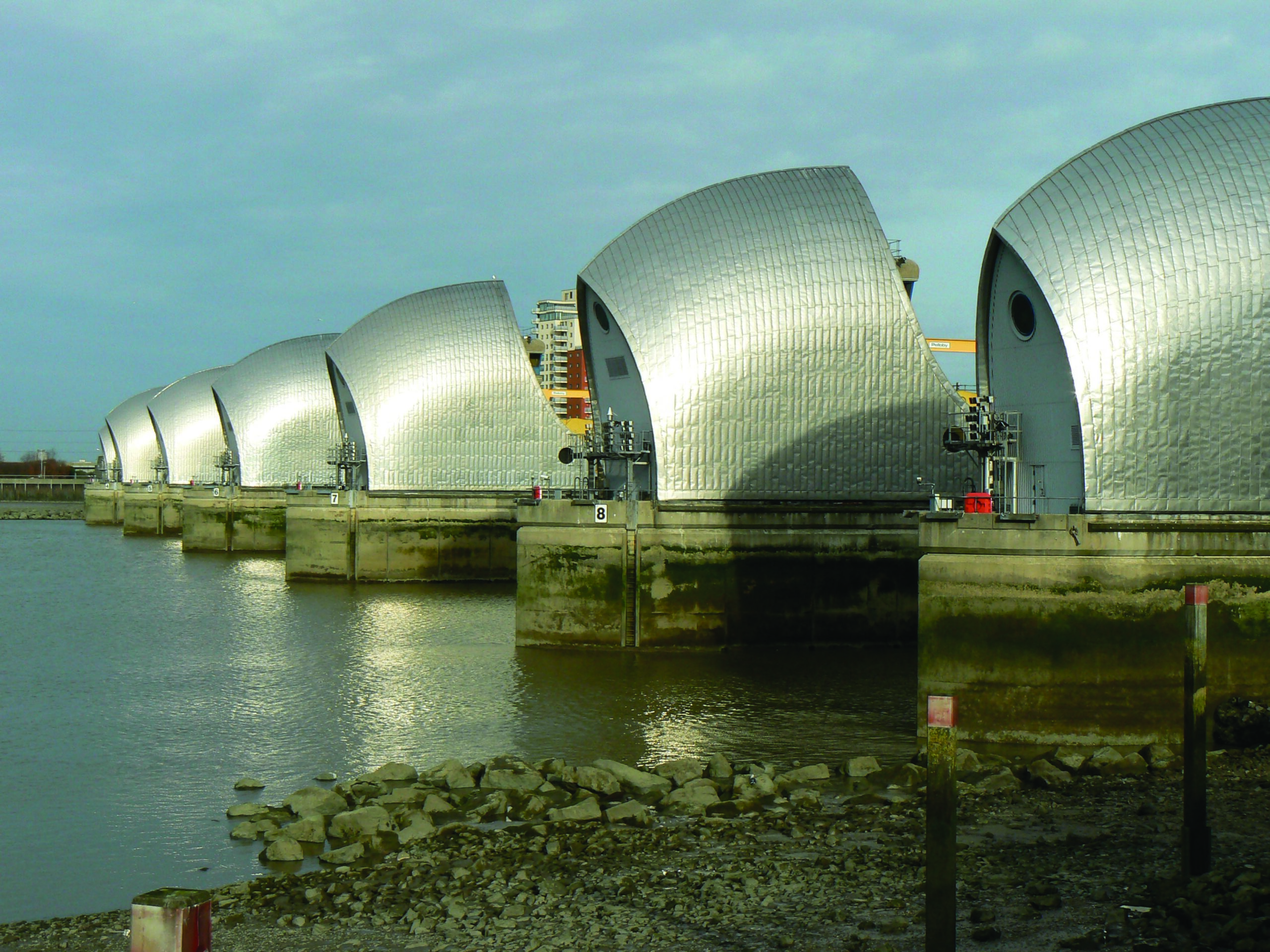Activité: Water
Type of services
The single largest investment in the history of the Royal Bahamas Defence Force
Rendel was awarded an Employer’s Representative contract for the provision of specialist marine consultancy services on three new ports facilities to accommodate the new Royal Bahamas Defence Force fleet.
This contract formed part of a US$200m investment by the Government of the Bahamas to upgrade ageing naval infrastructure and its fleet of small patrol vessels.
Rendel’s services included provision of procurement and contract advice, a detailed engineering review and construction supervision.
Work commenced in June 2014. The detailed engineering review was largely be carried out in the Bahamas, with two permanent resident engineers on site during the construction supervision phase.
Works included the construction of three small ports, sea walls, sea defences and associated infrastructure. Rendel worked in partnership with Paul E Hanna & Associates, based in Nassau, Bahamas, continuing a relationship that spans 20 years.
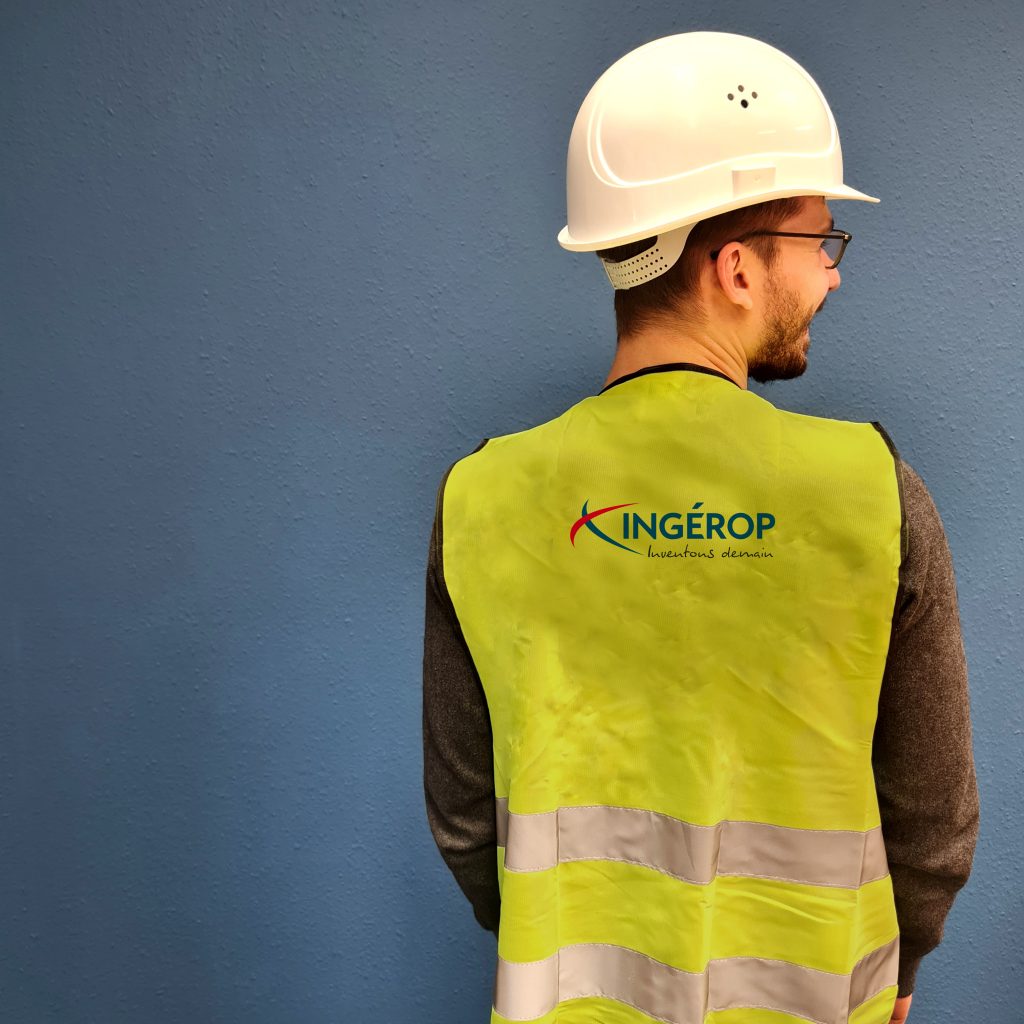
Vous souhaitez participer à de grands projets ?
Type of services
Rendel’s team in Australia has been appointed in a technical advisory role for Surf Lakes in Yeppoon, Queensland.
Surf Lakes is currently developing a cutting-edge Surf Park featuring a proprietary Wave Machine and innovative bathymetric reef designs, slated for construction in various locations worldwide. A prototype surf park has been operational in Yeppoon for approximately six years, serving as a demonstration site for this groundbreaking technology. This design is generic in nature and is to be adapted into site-specific detailed designs for each Surf Park location. This will start with upgrading the Yeppoon site to a commercial facility.
Rendel brings its wealth of experience in engineering design to the concrete lake bed with scope including:
- Review of proposed commercial lakebed design and jointing details.
- Value management to suit the site and its intended use.
This is a critical and exciting step to assist Surf Lakes in converting its prototype site into a commercially operating facility. Design work is well underway and the outcomes are looking good for an economic and robust solution that will allow perfect waves for the full facility design life with minimalised maintenance requirements.

Vous souhaitez participer à de grands projets ?
Types of services
The hazard study carried out in 2020 by the Geos office concluded that the upstream waterproofing of the empty reservoir dam must be restored in the medium term. In 2021, the CEBR decided to undertake studies to program the work integrating environmental and drinking water supply constraints. This work, for which Geos and Ingerop is the project manager, began in 2024 and includes:
- A preliminary phase of emptying the reservoir accompanied by dredging of the sediments;
- Rehabilitation work with drained reservoir, including the installation of a waterproofing geomembrane on the upstream facing of the dam, and the rehabilitation of the hydromechanical equipment of the bottom drain;
- The filling of the reservoir and the continuation of work on the ridge and downstream of the dam, including the resumption of civil engineering disorders.

Vous souhaitez participer à de grands projets ?
Notre Mission
By order of the Free State of Bavaria, the water management service of Donauwörth is implementing the flood retention basin on the Mindel to protect the town of Burgau. The basin has a retention capacity of 1.4 million m³. The implementation of the basin consists of a slightly curved dam embankment with a length of 1.5 km and a height of 6.0 m, as well as 4 multi-span dam structures for regulating the retention area. The flow rate is thus to be reduced from 135 m³/s to 65 m³/s. The adjacent railway line and the federal highway also constitute planning intersections.

Types of services
Types of services
Garacad Seaport is a new container terminal under construction in the town of Garacad in Somalia. The new port has been planned to open up the horn of Africa, central Somalia and the south-eastern region of Ethiopia to more accessible trade routes to the wider world, particularly the Arabian Gulf and Asia.
Rendel’s (Ingerop’s UK subsidiary) ports team, in collaboration with Ingerop Kenya and Ingerop South Africa, is delivering design review services for the development of the port for Wadaagsan Company. Our services include consultation and engineering design services, full design review and the optimisation of the design for the ongoing port construction project. In detail, the services being provided by Rendel and Ingerop are listed below:
- Design review of the current design of the project to identify value engineering opportunities and to provide recommendations for technical and cost improvements. The elements included in the design review are the approach channels and turning circles; project requirements; environmental conditions; berthing and mooring; quay wall stability and bearing pressures; geotechnical design parameters; breakwater design including rock/concrete armour unit protection; and utilities.
- Production and coordination of construction drawings.
- Ongoing engineering assistance to Wadaagsan Company to deliver a port serving both nationally and open up trade Internationally.

Vous souhaitez participer à de grands projets ?
Queen’s Award 1985
The Constrado Structural Steel Design Award
Our services
Project overview
The Thames Barrier is one of the world’s largest and most prestigious moveable flood defence structures. It was designed by Rendel who also supervised the construction of one Europe’s largest civil engineering projects undertaken between 1975 and 1985. The Barrier protects London from North Sea surges which, when combined with high astronomic tides and heavy fluvial flows, could result in flooding over large areas to effectively take London out of action for up to six months.
The structure covers the entire width of the River Thames at Woolwich, with four primary openings of 61m to permit navigation and six subsidiary gated openings.
A novel feature is the 19m high, 3,400 tonne Rising Sector Gates (RSG’s) in the navigational openings, which lie in recessed sills in the river bed when not in use to allow unobstructed passage of river traffic through the Barrier. Each gate is pivoted and supported between concrete piers, which contain the operating machinery and control equipment, with primary controls located on the south bank.
All gates are designed to withstand a design surge differential head of 8.4m from the downstream side. When a flood threat is imminent, the gates are swung up through 90 degrees to a vertical position and form a continuous barrier across the river.
Rendel has been involved with the Thames Barrier since its inception in the 1960’s, and has been involved in the following aspects of its lifespan:
- Extension of life of barrier (originally 50 years but in 2009 increased to 120 years) combatting the dangers of climate change, potential increasing sea levels and the higher probability of tidal surges on London
- Extensive hydrological and tidal investigations, hydraulic and model studies
- Engineering design (including design of gates and operating machinery)
Rendel has provided detailed services including provision of advice with regards to analytical and physical investigations and preparation of focus documents provided to simplify and clarify the intended function of the barrier gates.
Further studies have included detailed finite element analysis of the structure to confirm areas of high stress concentrations using advanced computing techniques which were not available at the time the original design was carried out.

Vous souhaitez participer à de grands projets ?
Types of services
The creation of a dry port, a Value-Added Logistics Centre (VALC) near the 6th October City, west of Cairo, to be connected by rail to the Port of El Dekhila Port and the Great Port of Alexandria (GPA) container hub. The VALC is planned to be the centre of a state-of-the-art facility which will combine all types of logistics/warehousing activities (refrigerated stores, bonded and non-bonded warehouses, etc.) It will allow the transfer of part of the container traffic transiting these two ports to the dry port for customs clearance and thus relieve congestion at these two existing ports and reduce other negative environmental and social externalities linked to the present movement of this traffic by road vehicles.
Services Provided by Rendel:
Traffic Review Study and Traffic Demand Study forecasting likely use of the dry port for several types of container traffic and likely throughput of containerised cargo transiting the dry port. Traffic Impact Study. Port Operations study within the Dry Port Area based on traffic forecasting, producing layouts of dry port appropriate cargo handling equipment with development cost estimates, including cost of civil construction, cargo handling equipment, manpower and maintenance.
Review of railway operations linking the two locations.
A project by Rendel, an Ingerop subsidiary.

Vous souhaitez participer à de grands projets ?
Types of services
The project involved rebuilding the Apremont “needle” dam on the Saône in the Haute-Saône district near Gray.
Built in 1860 and then modernized from 1982 to 1984, the Apremont dam constitutes a retaining reservoir to supply a diversion canal (navigable) whose entrance is located about 200m upstream from the dam.
This dam consists of a fixed part 55m long (spillway) and a mobile part (needle dam) 51m long with 4 passes of 12m. A hydroelectric plant is located on the right bank.
The purpose of the project is to:
- to replace the existing “needle” dam with a functional and automated structure (2 main passes of 21m – flap gate solution and “Obermeyer” type hydro-gates solution),
- realize the restoration of the spillway, the existing structures of the dam which will remain in place and the protection against scouring,
- to build a fish pass of the 10 successive basins type, adjoining the right-hand side,
- to build an eel pass and a canoe pass,
- the construction of a dual-use footbridge, public and technical, on the dam.

Vous souhaitez participer à de grands projets ?
Types of services
EDF is the operator of the hydroelectric plants on the Rhine bays of Marckolsheim, Rhinau, Gerstheim and Strasbourg and, as consequence, in charge of the maintenance and upkeep of the banks on these reaches.
The work carried out consisted in protecting the internal side of the dikes, by preventing erosion by installing new riprap in order to:
- restore mechanical protection in weakened areas;
- re-establish banks with regular profiles (below and above the water level).
The underwater works were carried out from a floating pontoon equipped with a mechanical shovel. The external works were carried out from the crest of the dike.
The works lasted three years, on the left and right banks (on the German side).
To check and validate the works and define the work to come, the water level was lowered by about 1 m at the end of 2010

Vous souhaitez participer à de grands projets ?
NEY, MDP
Types of services
Ingerop is in charge of the BIM project management of lots 2 and 4 within an engineering grouping, for a 25% share of the fees.
The missions handled by Ingérop are:
- Design (feasibility studies, final design, assistance to the client at work contract phase)
- Supervision of the works
- Preparation of the environmental authorisation dossier
- Eco-design
- Project management (management of interfaces, costs, deadlines and risks, consultation)
The technical subjects handled directly by Ingérop concern:
- Layout of the canal and the restorations
- Earthworks (large earthworks) and related earth movement (problems of large earth surpluses)
- Engineering structures (canal bridges, bowstring bridges, double girders, PICF, etc.)
- Network re-establishment
BIM coordination

Vous souhaitez participer à de grands projets ?
Knighthall Hendry
Types of services
Repair and refurbishment of 120m of 500mm diameter outlet pipe. Slope stabilization of 2500m2 vertical cliff face over spillway. Raise the existing lay core of the dam by 2.5m in order to comply with dam safety requirements.
Ingeop South Africa have been involved from the application of funding from the MWIG to the preliminary and final design and finally up to construction supervision stage of the repair and refurbishment works to Lomati Dam. Investigation into the repair and refurbishment works began as far back as 2008, with construction commencing in November 2013. Once the dam safety requirements of Lomati Dam have been met, ISA will commence work investigating the raising of the dam wall in order to increase the dam yield. This will involve the possible use of fuse-gates at the existing spillway.



